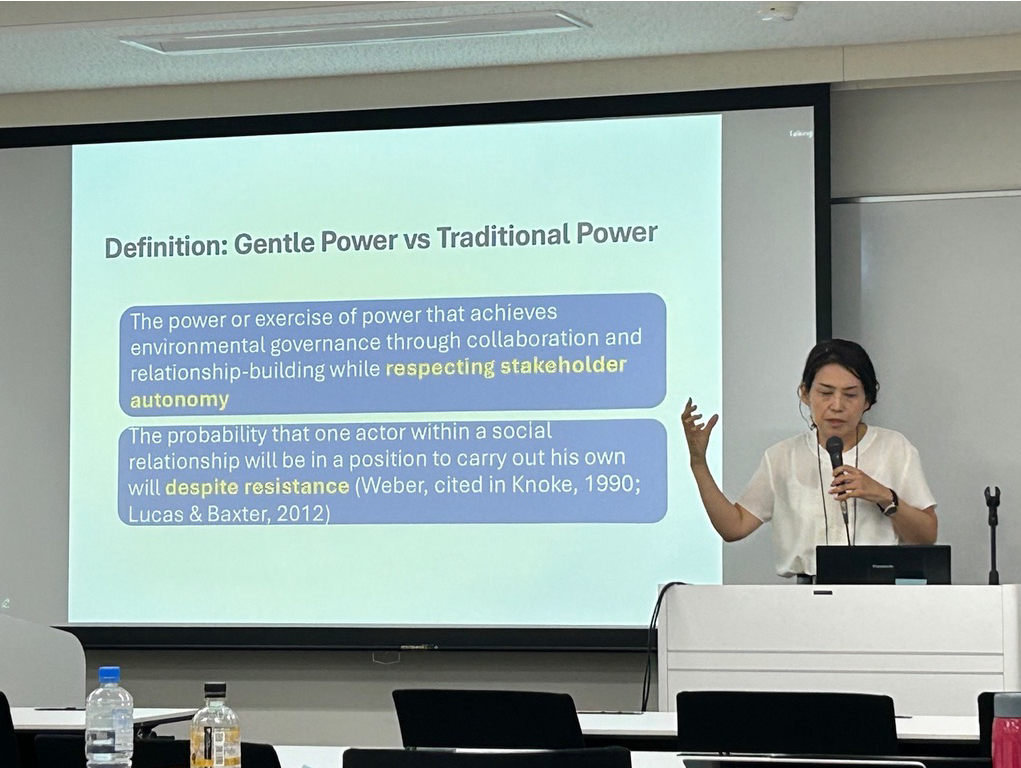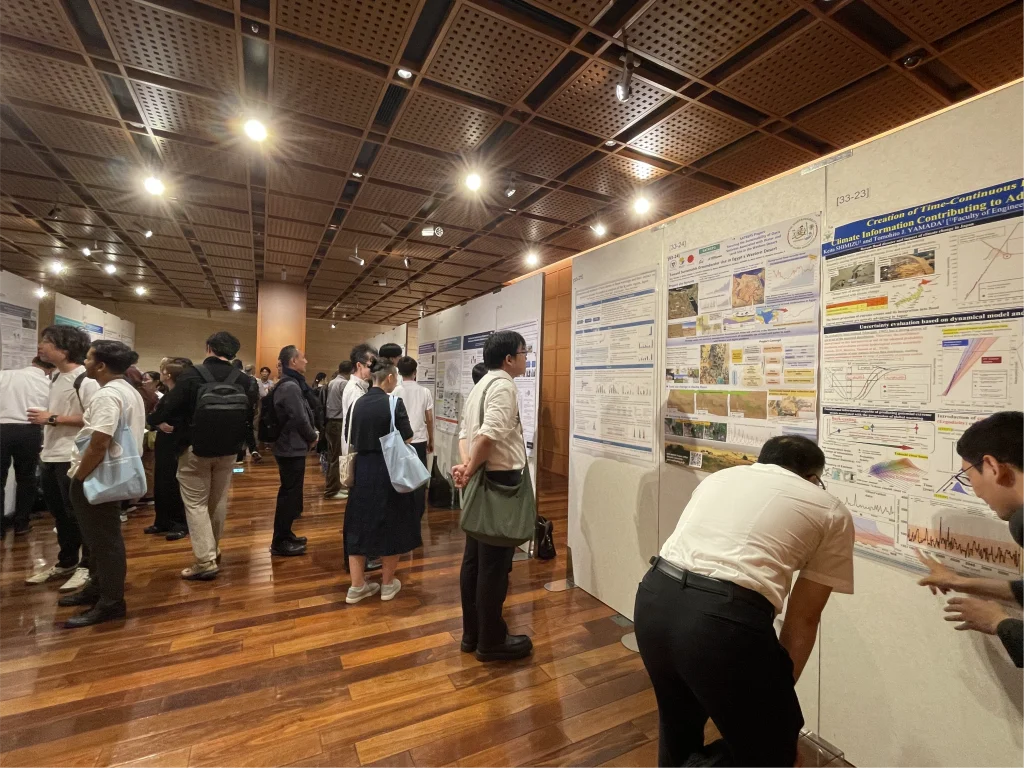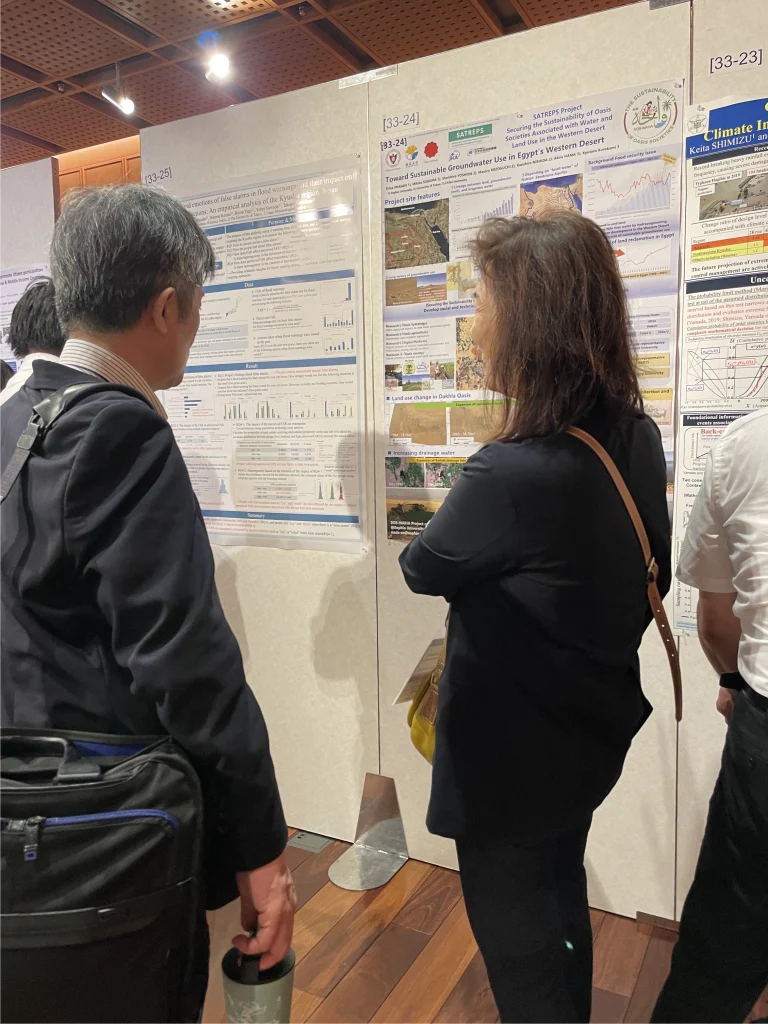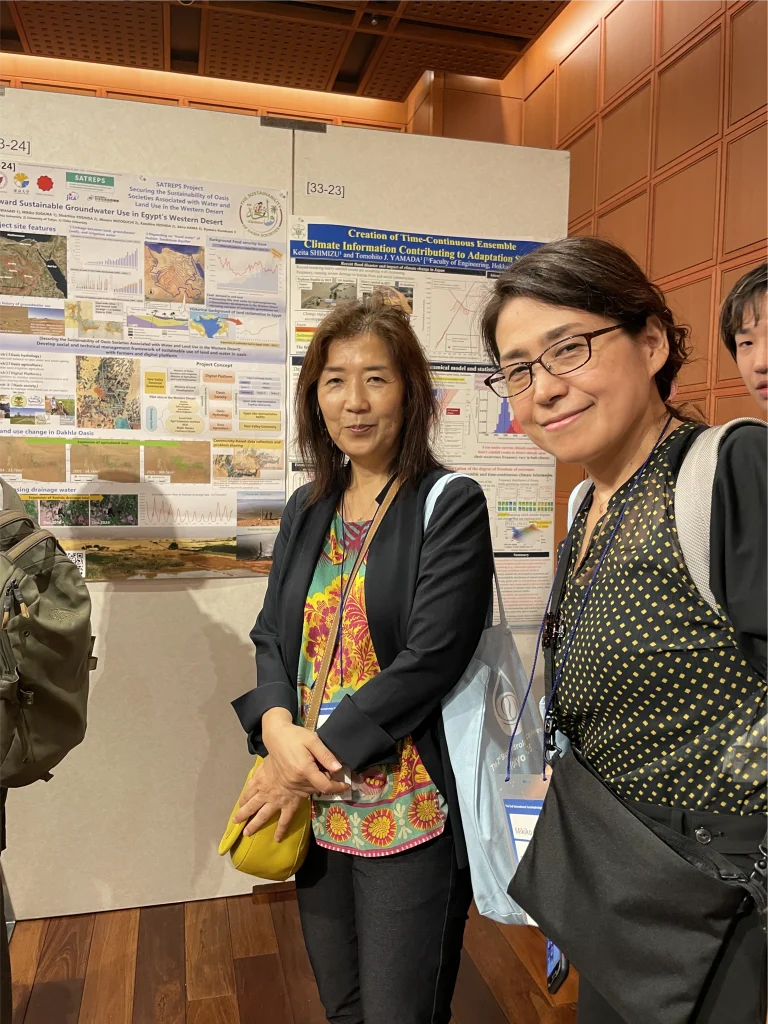News 2025/7/20
At the 2nd International Sociohydrology Conference




Recent News
Sun. Jul 20, 2025 3:30 PM – 5:00 PM JST | Sun. Jul 20, 2025 6:30 AM – 8:00 AM UTC International Research Center)(Multiple Hall (Ito International Research Center))
[33] Poster Session
Multiple Hall (Ito
[33-24] Toward sustainable groundwater use in the Western Desert, Egypt
*Erina Iwasaki1, Mikiko Sugiura1, Shuichiro Yoshida2, Masaru Mizoguchi2, Kazuhiro Nishida2, Akira Hama3
(1. Sophia Univ. (Japan), 2. Tokyo Univ. (Japan), 3. Chiba Univ. (Japan))
Keywords:oasis、groundwater、sustainable water use、Egypt
Egypt has been exceptionally blessed with water resources in the Middle East and North Africa, but the available water resources of the Nile River have reached their limit in the face of a growing population. Therefore, since the 1960s, Egypt has begun to draw water from the Nubian Sandstone Aquifer System beneath the Western Desert and started
reclaiming the desert. Entering the 21st century, in response to international circumstances triggered by the invasion of Ukraine and population pressure, the Egyptian government has further expanded food production in the Western Desert, and groundwater development and desert reclamation projects have been further expanded. This study aims to clarify the current state of Egypt’s groundwater utilization system in the Western Desert and, based on that, to present issues that should be considered in Egypt’s groundwater utilization.
Mon. Jul 21, 2025 1:45 PM – 3:15 PM JST | Mon. Jul 21, 2025 4:45 AM – 6:15 AM UTC B1(Kojima
Conference Room (Kojima Hall))
[45] Linking Knowledge and Practice for Rural Water and Farmer
Resilience
2:15 PM – 2:30 PM JST | 5:15 AM – 5:30 AM UTC
[45-02] Role of ‘Gentle’ Power in Community-Based Conservation through
Local Farming Practices: A Case Study in Tokyo’s Satoyama Landscapes
*Mikiko Sugiura1 (1. Sophia University (Japan))
Keywords:Satoyama、Water resource governance、Gentle power dynamics、Community-based resource management、Socioecologial systems
While power dynamics in water resource development have drawn research attention, governance patterns in Japan often show more nuanced relationships. This study analyzes the role of “gentle” power in local engagement for resource management through participant observation of socioecological conservation efforts in the Tokyo metropolitan,area.
Satoyama comprises a mosaic landscape of secondary forests, paddy fields, irrigation facilities, grasslands, and human settlements. This community-based socioecological system, maintained through human activities, enables sustainable resource use while providing ecosystem services. Water management, particularly artificial control of paddy field water levels, is crucial for two reasons: it creates diverse environments aligned with amphibian and insect reproduction processes, supporting biodiversity, and helps mitigate climate change by reducing methane emissions. These locally developed practices, labor- intensive and pesticide-free methods, offer many benefits including these points. In the current context of aging populations and labor shortages challenging the transmission of local knowledge, the initiative for local stakeholder engagement and community empowerment demonstrates the effectiveness of a form of “gentle” power that, while fundamentally bottom-up, necessarily operates in parallel with administrative and institutional frameworks.
